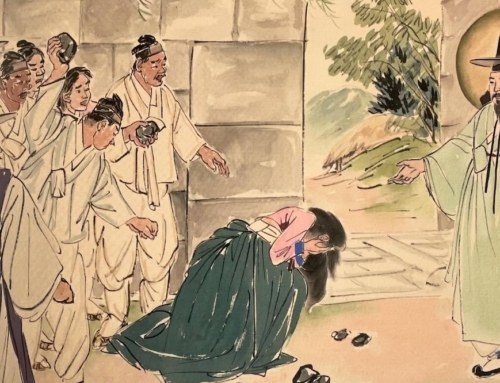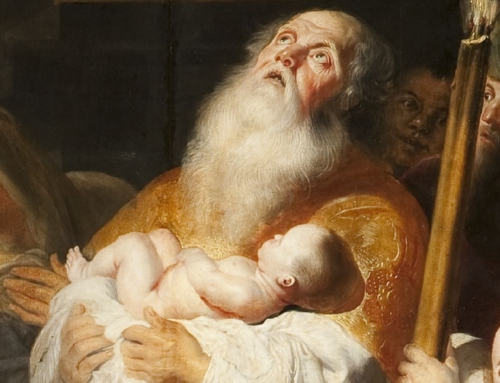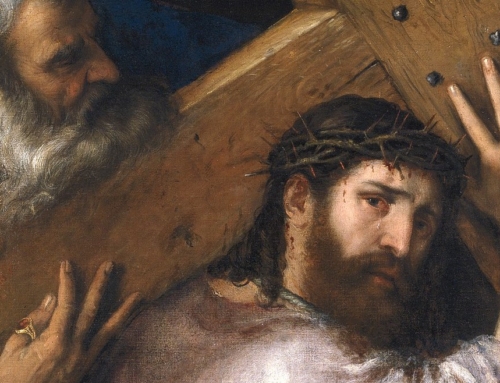The Ascension of Jesus Christ into heaven stuns the human mind. It is a terrific display of the glory, grandeur, and majesty of God’s power. The eternal Son of God, having taken on the flesh of humanity, now ascends to the heavenly throne to sit at the right hand of the Father. Jesus enters the dwelling place of the Father’s house, where he lives forever unto ages of ages. In this City of God, the heavenly Jerusalem, we are all are invited to partake of the wedding feast of the Lamb.
Yet how do we ascend to heaven? The answer is as simple as it is paradoxical: to ascend to heaven, we must embrace the descent, because it is only when we are lowly that God lifts us up to heaven.
There are three parts to this spiritual truth. The first is recognizing that we cannot get to heaven on our own. The Gospel for the Solemnity of the Ascension shows this quite clearly. When the disciples saw Jesus ascend into heaven, they immediately went to the temple and offered praise to God (Luke 24:53). Why? Because they were in awe. Ascending into heaven is not something that the disciples can do! They acknowledge their limitations. They are weak, human, sinful, and powerless, while God is strong, divine, full of love, and omnipotent. The disciples recognize that it is only by the power of God that they can get to heaven.
Second, we must embrace the descent. Everyday, ordinary life is emphatically not heaven. It can be mundane, boring, repetitive, difficult, and full of suffering. There are many examples of this. Prayer may not be full of consolation. We go to the same job everyday. There are always people that annoy us. We may want to watch TV but have to do chores instead. Life is often difficult! Normal life seems lower than the exalted glories of heaven. That’s because it is. “The sufferings of this present time are not worth comparing with the glory about to be revealed to us,” (Rom 8:18) as St. Paul says. In fact, it is often when we embrace the sufferings of the present moment that God reveals his glory to us and prepares us for the glories to come. In his providence, everything is permitted for our good. By joyfully saying “yes” to our duties of prayer, our work, loving our neighbor, and even all our sufferings, we start to be shaped more and more into the pattern of our heavenly maker. By embracing the difficulties in this earthly valley of tears, we merit the unfading heavenly crown of glory (1 Pet 5:4).
Finally, it is important to recognize that God lifts up the lowly. If all we do is acknowledge that we cannot go to heaven on our own and that life is difficult, we will inevitably despair. But this last part of the story is a constant reminder that any moment of distress and difficulty can be transformed into a cause for faith and hope in the risen Lord. To see this, one need only recall the opening lines of the Blessed Mother’s Magnificat: “My soul proclaims the greatness of the Lord; my spirit rejoices in God my savior. For he has looked upon his handmaid’s lowliness” (Luke 1:46-48). God is merciful to the lowly. He is a savior to the humble. In contrast, “God opposes the proud” (Jas 4:6). We are fallen human creatures. We cannot rise to God on our terms. But we can embrace our savior, the person of Jesus Christ. Our Lord rushes to us in our broken humanity, in our lowliness, reassuring us that blessed indeed are the poor, for “theirs is the kingdom of heaven” (Matt 5:3).
The Ascension of Jesus Christ into heaven should be a cause of great joy for us. Where our Lord has gone on his own, he can take us with him . . . but we may be surprised to find that the way up is down.
✠
Image: John Singleton Copley, The Ascension







